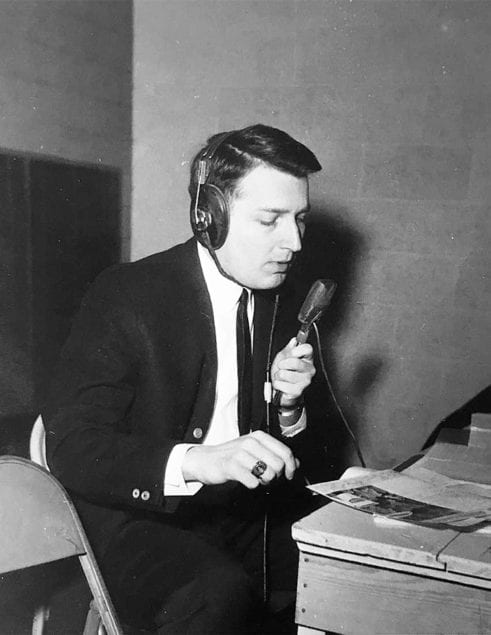
Full disclosure: I am not very observant when it comes to Jewish holidays. I work and do not fast on the Day of Atonement. It wasn’t always this way. At one time I was quite a scholar. I graduated from Hebrew School, was bar mitzvahed and had further teachings through the Talmud. I considered this an important aspect of my life and made sure I observed all the major Jewish holidays for another decade, including Yom Kippur Day in 1963.
What follows next is what you might call a cultural clash, not a religious argument. I took off from work that day more than fifty years ago, after informing my employer, WONW Radio, of my intentions. Not much was made of it, and there was no second guessing or what might have passed for anti-Semitism at the station. That is, until the man who “discovered” me—Howard Myers—the influential sales manager, got wind of my decision.
Howard and I met quite by accident the year before at the Ohio State High School Basketball Tournament held at the arena on campus. I was completing a final assignment at the Columbus Dispatch, which included covering a post game interview with the coaches. We chatted while waiting for the press conference.
Myers was a silver-maned, well-dressed man in his early 50s and looked the part of a broadcasting executive. “Are you a journalism major?” he began. I had just graduated with a BA in broadcasting and spent a lot of time working at the student run radio station at OSU. And then he said the magic words: “Our radio station broadcasts a lot of games. We’re looking for someone who can do play- by-play.”
Myers spent the next few minutes describing the type of job I had always dreamed about. One thing led to another and we arranged for an interview a few weeks later.
Fast forward to the fall of ’63 where the calendar showed the Game of the Year would be held Friday night September 27, the start of Yom Kippur. Defiance, where WONW was located, vs. their bitter rivals in football, Napoleon, 15 miles east and the home of the Campbell Soup Company. This was the high school equivalent of Ohio State vs. Michigan, Alabama-Auburn or USC-UCLA. If you’ve ever watched the TV show Friday Night Lights or the Tom Cruise movie All The Right Moves, you will appreciate the intense pressure that comes with these rivalry games, even at the high school level.
Defiance’s population was 16,000, 3 percent African American and only one Jewish family that I was aware of. Napoleon, with 9,000 inhabitants, actually had a noticeable Mexican population, largely due to Campbell’s employing a number of migrants for picking. I never heard of any Jewish families living there.
The clever Myers was practically a legend among the towns we serviced. Some of us marveled at how effective his low-key, amiable style was. “Just meetin’ the people,” was how he put it. I can only imagine how much he had riding on the big game—advertising-wise.
As game day approached, Howard learned of my absence and was not happy. The station would have to use one of the stringers to sub for me. And, that’s when Myers voiced his disapproval, using my occasional choice of lunch meat as damning evidence.
It didn’t bother me. How could it. If it wasn’t for Myers, I wouldn’t have had the kind of job I always wanted.
He was relentless as a sales manager, milking every opportunity to bring additional revenue to the station. He had this strange expression that was one of his favorites and summed up his attitude about the business: “If it’s good enough to sell, it’s good enough to put on the air.” That’s telling them, Howard.

About the Author
Bob Goldstein is a retired broadcaster and advertising executive who has lived in South Florida for more than forty years. He is a veteran political activist (dsdcfl.org) and a member of the South Florida Writers Association. If you would like to comment on Bob’s columns, send your response by email to robertgrimm62@yahoo.com.






